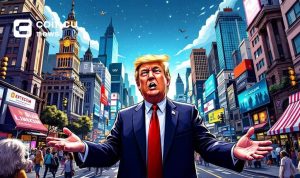- Personalized tariffs are a new approach to handling international trade complexities.
- The strategy might lead to increased administrative burdens despite aiming for trade efficiency.
- The geopolitical and economic impacts are yet to be fully understood, with market volatility likely.

Officials from the Trump administration convened to discuss implementing personalized tariffs on March 18th, aiming to address trade complexities among U.S. partners. The policy shift could affect international economic relations.
Personalized tariffs could reshape how the U.S. handles trade with different countries, potentially affecting global markets and diplomatic ties. Immediate reactions in the financial world are cautious, awaiting further details.
U.S. Explores Personalized Tariffs to Streamline Trade
U.S. trade officials discussed personalized tariffs to streamline international trade, involving a select group of leaders. Over two days, officials debated strategies and rejected a three-tier system for setting tariffs. The meeting included Chief of Staff Meadows and other key figures, emphasizing the complexity of tailored tariffs.
A personalized tariff model focuses on customized rates for individual countries. This approach necessitates detailed negotiations, potentially increasing administrative burdens but aiming for accuracy. The decision to opt for personalized tariffs over a uniform model reflects a strategic move aiming to maximize trade efficiencies.
Industry representatives and trade analysts responded to the personalized tariff announcement with varied opinions. As Michael Johnson, Trade Expert at Parliament Library states, “The geopolitical landscape is shifting, and tariffs are a central tool in the new strategy.” Officials like the U.S. Trade Representative and Treasury Secretary have yet to issue major public statements, focusing on internal deliberations.
Historical Context and Market Implications of Tariff Changes
Prior discussions have largely favored standard trade models. Analysts predict potential challenges arising from implementing such a nuanced system, including diplomatic tensions. Historical data suggests markets could initially react with volatility.
Economic experts suggest personalized tariffs may transform trade dynamics by fostering targeted negotiations. Enhanced data analysis capabilities will likely influence governments’ decision-making processes in determining country-specific rates.























